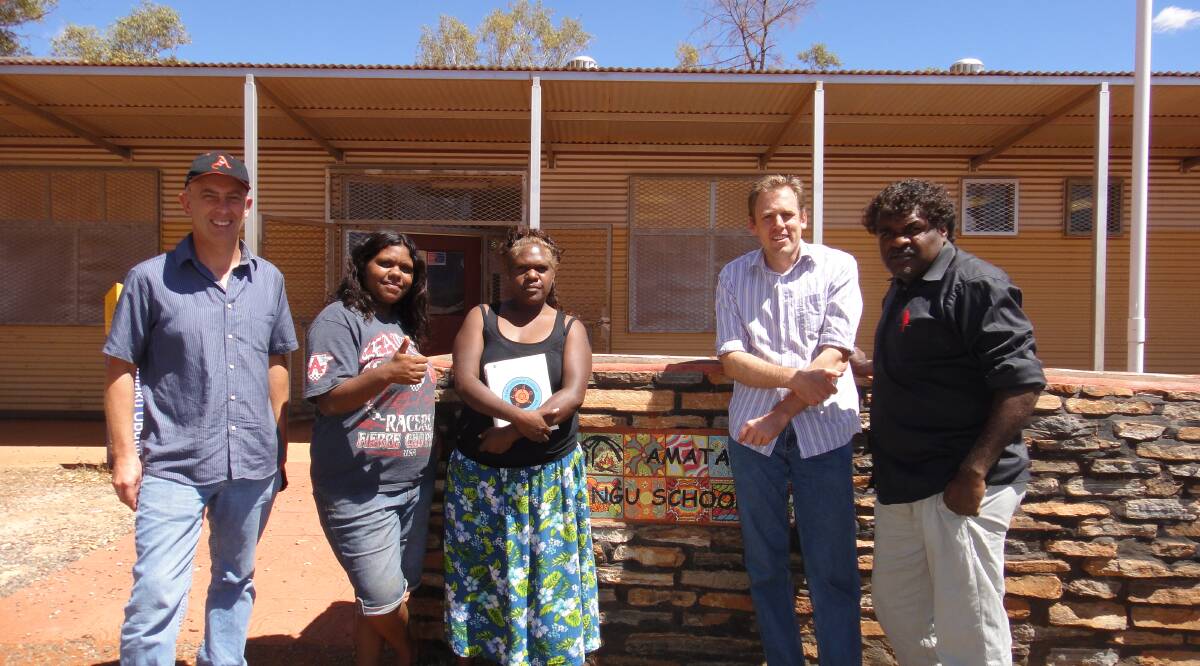
Aboriginal teachers who can teach in local languages are essential for remote Indigenous education, new research shows.
Subscribe now for unlimited access.
or signup to continue reading
Drawing on over 770 responses from local Indigenous education leaders, non-local leaders, and Indigenous community members, the research found bilingual or first language education had not been prioritised in recent years.
Dr John Guenther of the Batchelor Institute led the study and said, “one of the main challenges for education systems wanting to pursue first language teaching is finding enough qualified teachers.”
“This is exactly why having a well-trained local workforce is so important—local educators not only speak local languages but they know their community,”
Indigenous education leaders and community members agreed on the importance of identity, parent and community involvement, and language, land and culture.
Mr Guenther said the leaders thought it was important to be “strong in both worlds” – to both deepen connections to local culture and succeed in Australia’s wider education system.
“We believe that our children are happier learning first in their own language. They have more confidence in learning, in themselves and they learn more effectively,” one local Indigenous leader said.
According to the study, non-local leaders’ priorities aligned less with those of remote Indigenous communities and were more concerned with systemic issues, such as employment strategies, policy and political contexts, measurable outcomes, workforce development and issues of race and equity.
Dr Guenther said this was due to the demands placed on them by the education system: “These non-local leaders grappled with tension between the desires of local communities and the issues they had to report on to education authorities.”
“However, non-local leaders, who have grown up with urban expectations of schooling, will naturally be more comfortable working with a system they know well,” Dr Guenther said.
“The tension is more acute for local Aboriginal school leaders, who are caught in the middle between these two worlds.”
“If we talk about success, it needs to be holistic, it needs to involve the community,” a local school leader said.
“Too often, remote community schools or schools in remote areas set themselves up as islands and they set themselves up as the institution that is going to resolve the issue with Indigenous people when in reality that’s not the case.”
Community members also had priorities which were “not high on the list of important concerns for either non-local leaders or remote Aboriginal leaders”, such as academic outcomes, health and wellbeing and relationships.
“Many education leaders at “red dirt” schools are doing a great job, but are placed in a difficult position,” Dr Guenther said.
“The evidence shown here may suggest that system priorities about what matters and what communities think matters are largely mutually exclusive with very little overlap,” he said.
“Local Aboriginal leaders may act as a bridge or a broker between the two, but there is only so much they can do.”
Co-author, Dr Sam Osborne from the University of South Australia, said the research showed there was a strong need for first language local Indigenous educators in schools.
“Each group recognised the value of recruiting and training local staff. They were seen as important vehicles for successful education delivery,” Dr Osborne said.
While you're with us, you can now receive updates straight to your inbox each Friday at 6am from the Katherine Times. To make sure you're up to date with all the news, sign up here.
What else is making the news?

